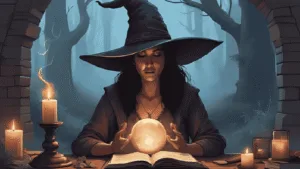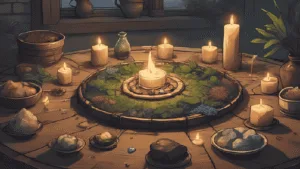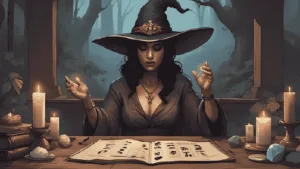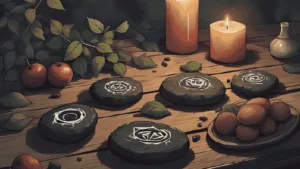Oracle Cards for Beginners: How to Use Them with Confidence
Oracle cards may look mysterious, but they’re one of the easiest divination tools to start with. Whether your deck features goddesses, crystals, animals, or affirmations, the principle is the same: shuffle, draw, and reflect. For oracle cards for beginners, the challenge isn’t learning complex systems — it’s trusting your intuition and building confidence.
Oracle Cards for Beginners: Preparing Your Deck
Before you dive in, it helps to set the scene. You don’t need a fancy ritual; just create a moment of focus. Try:
-
Shuffling while thinking of your question.
-
Knocking gently on the deck to clear old energy.
-
Taking a few deep breaths to ground yourself.
If you’re witchy-minded, you can place the deck on your altar, leave it under moonlight, or tuck a sprig of rosemary or lavender in the box. For oracle cards for beginners, these simple acts make the deck feel personal and sacred.
Oracle Cards for Beginners: Asking the Right Questions
The questions you ask shape the answers you’ll receive. Open-ended questions work best. Examples include:
-
What energy surrounds me right now?
-
What do I need to release?
-
What lesson should I carry forward?
Avoid yes/no questions. Oracle cards thrive on themes and guidance rather than absolutes. This is why oracle cards for beginners are so good at prompting reflection.
Oracle Cards for Beginners: Simple Spreads
Oracle cards don’t need elaborate layouts. Start small:
-
One-card pull: Perfect for daily guidance.
-
Two-card spread: “What to embrace / What to release.”
-
Three-card spread: Past – Present – Future, or Mind – Body – Spirit.
For oracle cards for beginners, these straightforward spreads build confidence without overwhelm.
If you’re already working with tarot, try blending the two: do a tarot spread for detail, then pull an oracle card for the “headline” message. Many witches love this combo because it balances depth with clarity.
Oracle Cards for Beginners: Journalling with Your Deck
Keeping a journal deepens your connection to the cards. Each time you draw:
-
Write down the card’s name or keyword.
-
Note your first impressions before checking the guidebook.
-
Reflect on how it relates to your day or question.
Over time, this creates a personal dictionary of meanings. For oracle cards for beginners, journalling is one of the fastest ways to strengthen intuition.
Oracle Cards for Beginners: Reading with Intuition
Don’t get stuck on the “official” meaning. The artwork itself often holds the real message. Ask yourself:
-
What emotion does this image stir in me?
-
Which symbol catches my eye first?
-
How does it connect to my current situation?
For example, a card labelled Courage might show a mountain lion. One reader sees bravery, another notices the wilderness, suggesting exploration. Both are valid. For oracle cards for beginners, intuition matters as much as guidebook definitions.
If you’re reading for a friend, let them share their impressions too. Sometimes the seeker’s first reaction reveals more than your interpretation. This makes oracle cards wonderfully flexible for group readings or coven circles.
Final Thoughts
For oracle cards for beginners, confidence grows with practice, not perfection. Shuffle, draw, reflect — and let the cards speak in your own language.
Remember: oracle cards aren’t here to predict the future. They’re here to guide, comfort, and spark self-reflection. Whether you pull one card a day, use them alongside tarot, or share them in circle, these decks are friendly companions on your magical journey.
Blessed be!
Don’t forget to check out my Etsy Shop for spell & ritual kits
Discover more from Lancs Green Witch
Subscribe to get the latest posts sent to your email.







